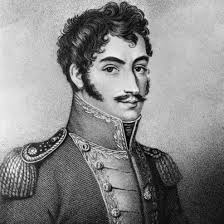1. American Revolution- A Revolution by the people of the British colonies in the New World, a long war in which the Colonists were eventually victorious and were assisted by Britain's rivals such as France
2. Pugachev Revolution- A Revolution in Russia that began as a peasant revolt and developed into a full fledged Rebellion. The war lasted from 1773-1775 and was led by a former lieutenant named Yemelyan Pugachev for whom the rebellion is named
3. The French Revolution- A Revolution in France that was from 1789-1999. During the revolution there was a lot of anger and hatred towards the monarchy and resulted in the decapitation of the Royal Family
4. Serfdom- a system of social hierarchy where "serfs" or peasants tied to the land worked for nobles on their and gave them a large percentage of their crops.
5. Declaration of Independence- the document that explained the reasons for the American Revolution as well stated the leaders of the Revolution
6. Declaration of the Rights of Man- A document made by the people during the French Revolution that stated the Natural given rights of people (men) and pointed out that the monarchy was not allowing the commoners their born rights.
7. National Identity- A sense of belonging to one area or country. This unites and makes whole the people of a country, nation or a state
8. Nationalism- being patriotic or the feeling of patriotism towards your country
9. Federalism- a system of government which is union of states
10. Constitutional Government- a type of government in which it is held accountable by a Constitution which is a set of fundamental principles or established precedents
11. Republic- a government expressing the interests of the people
12. Romanticism- A European philosophy that valued feeling over reason and focused on nature, imagination and traditions
13. Maroons- societies of freed and escaped slaves living as a freed community. Effort on the part of the authorities was put into shutting down such communities but they remained active for a long time.
14. Liberalism- a philosophy base on liberty and equality
15. Focuses of the Enlightenment- the Enlightenment valued Personal Freedoms, Natural Rights and Freedom from Monarchic abuse
16. Natural Rights- rights such life, liberty and the pursuit of happiness which are given at birth and can not be taken away by any monarchy or any other kind of government.
17. Anti-colonialism- philosophy in colonies that pointed out flaws in the mother countries such as Britain, France, ect and inspired revolution and reform.
18. Aufklärung- the German Enlightenment
19. Enlightened Absolutism- a technique used by monarchs threatened by Enlightenment reforms, Monarchs accepted Enlightenment reforms and ideologies but kept their absolute authority
20. Glorious Revolution- The rebellion in England which took the crown from Catholic king James II and gave it to new Protestant monarchs
21. Individualism- recognizing each individual as valuable and important
22. Rationalism- using reason to arrive at truth
23. Relativism- all beliefs and ideas have equal merit
24. Separation of Power- idea that government should be divided into branches, judicial, legislative, executive
25. Skepticism- a response to rationalism which stated that human senses are too easily fooled to trust
26. Thirty Years’ War- conflict in Germany from 1618-1648, Resulted in the deaths of a third of Germany's population
28. Salons- meeting place for the wealth and intellectual elites to meet
29. Deism- belief system in which they believed in an all-powerful God but believed that once God created everything he set everything into motion. Those who followed this philosophy referred to god as "a cosmic watch maker."
Smith, Bonnie G., Richard Von Glahn, and Kris E. Lane. Crossroads and Cultures: A History of the World's Peoples. Boston: Bedford/St. Martin's, 2012. Print.
https://www.sparknotes.com/history/european/enlightenment/terms.html




